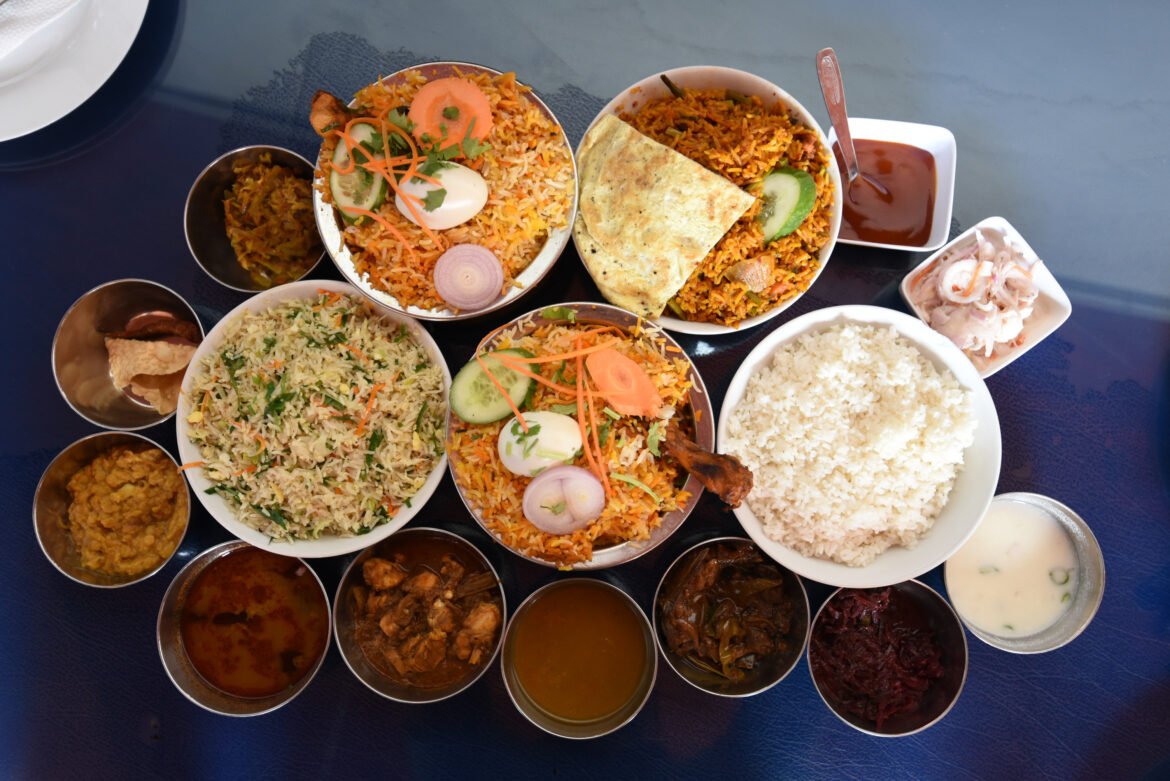The Role of Food
Food is associated with everything – birth, marriage, funeral, festival, religious observance, penance, alms giving, gift giving, traveling, health and medicine. Therefore, food and food preparation are important to these people. Depending on the context, there are permitted and unpermitted foods along with methods of preparation.
Most religious, auspicious, celebratory events will be commemorated with vegetarian dishes. In Saiva places of worship only vegetarian meals are prepared and offered. Even the various gods of Saivam have their own favourite food and the offerings are made accordingly. There are set items that are prepared for some celebrations. It is essential to have Sweet Pongal rice for Thai pongal and Adi Kool for Adi Pirappu. A full-course Jaffna vegetarian meal is a treat to any palate. However, the regional cuisine is not restricted to vegetarian.
Jaffna cuisine is mostly popular for its seafood and meat dishes. Chicken and mutton are the primary meat products while there is a huge variety in seafood. Jaffna cuisine has something for all because the food is based on six types of tastes (sweet, sour, salty, bitter, astringent, pungent) – arusuvai -unlike the Western cuisine of five types of tastes (sweet, sour, salty, bitter, savory). The different blends of these six tastes create the unique dishes of the region.
The traditional medical practice of the region is called Sidda Vaiththiyam. This is closely related to the Ayurvedic practice. However, while Ayurveda medicine is based solely on plant products, Sidda uses both animal and plant products. The people live by the principle ‘Unave marunththu’ or ‘Food is medicine’ and prepare various dishes that treat ailments in the daily meals. As such the locals possess knowledge in the healing properties of various food items.
Food Preparation and Practices
The food preparation processes for some events stipulate that the entire floors of a residence being washed and turmeric water sprinkled throughout the home prior to cooking. Another notable aspect is that cooking utensils, tools, cutlery and crockery are maintained separately for vegetarian and nonvegetarian food preparation and consumption. People prefer to eat on plantain leaves as it is considered clean and healthy. It is still common to see people enjoy Kool or Kanji using a leaf shaped in to a spoon. Drinking from a tumbler requires that one does not place his/her lips on the rim of the vessel. These practices stem from the people’s importance to cleanliness and hygiene. Cooking vessels made of clay are preferred and coconut shell ladles are used in cooking.
In funerals, food is not served to the mourners and visitors who do not reside in the household of the deceased and it is not seen as an offence. Visitors refuse to eat and drink anything offered at a funeral. This is because consuming any food or beverages restricts them from partaking in religious activities as far has not being permitted to enter a temple for a period of 31 days. Similarly there are wide cultural taboos, norms and stigmas in the Jaffna Food Culture.

